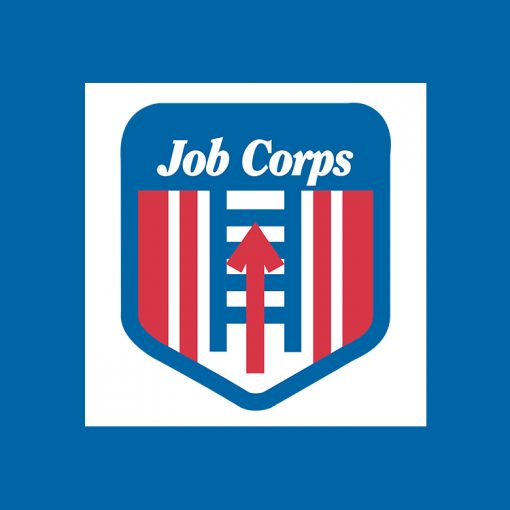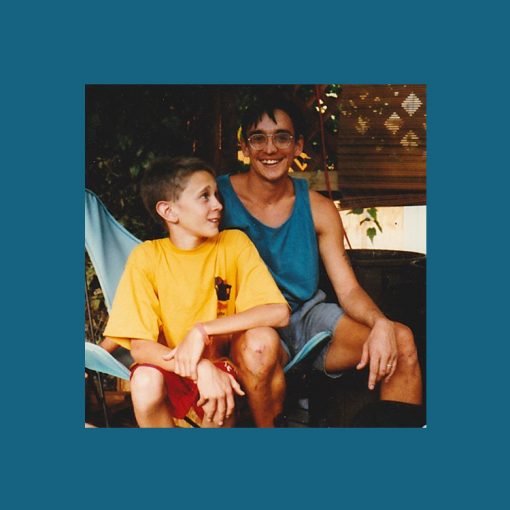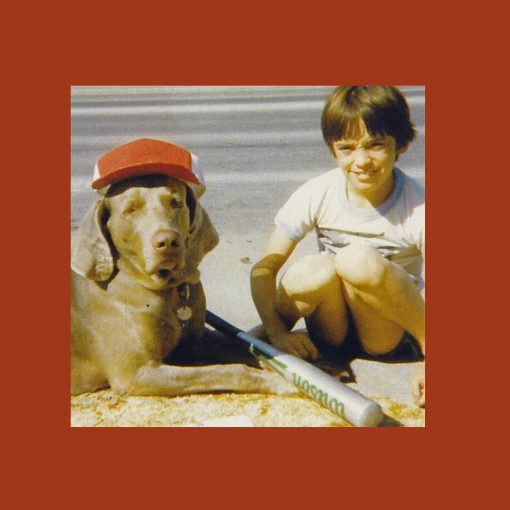Our defining moment on Hunley began innocently enough in August of 1992 when a rare training cruise took us up the coast to Halifax, Nova Scotia for four days in port after practicing General Quarters drills all the way there. Caleb and I served on the damage control teams, so our time underway was pretty well proscribed by the wailing of bells and simulated emergencies testing the crew’s ability to keep us from going down in flames when challenged by war. We also stood deck watches along the way making sure the ship stayed on course without bumping into the hundreds of other ships plying the busy Atlantic sea lanes between Virginia and Canada.
We were the first Navy vessel to visit in decades, so our arrival was an event for the quiet city of 350,000 welcoming souls tucked into the folds of a forested bay. We also brought a ton of cash as the bulk of the crew had three days off to sightsee and party and shop. There’s something special about working in deck department as a ship pulls into port while excited locals line the pier. Handmade “monkey’s fists” are tossed ashore to be snagged by the waiting dock workers to pull the bigger four-inch hawsers across the gap to secure the ship while in port. We then lowered the stern ladder to the waiting ramp and set up the quarterdeck to greet visitors as well as let eager sailors head ashore for liberty.
I was in the duty section that took charge the day we pulled in and only had an afternoon and evening on watch, which left me a full three days to myself before pulling out on the morning of day four. Our money was worth nearly twice as much at home and the drinking age was 18, so the town anticipated both serious shenanigans and an influx of revenue. Halifax isn’t a huge metropolis and much of the sights were within walking distance of the ship, though I suspect we went further afield than most of our shipmates as Caleb speculated on immigrating to Canada by the middle of our first day ashore and wanted to explore every inch of his new home after the warm reception he received the night before while I was on duty.
The night ended in bar toward the city’s plateau with sweeping views of the downtown streets that stair-stepped down the steep hills leading toward the harbor. Since Hunley was sixty percent women and the men who remained were largely older and married, it left the single young ladies of Halifax with a limited number of eager sailors to choose from. Most stayed glued to their chairs and their beers while Caleb and I hit the tiny dance floor and proceeded to tear it up for a couple of hours, flirting with pretty girls as necessary. I struck out, which was par for the course, while Caleb went home with the tall brunette he met the evening we pulled in and agreed to meet again this night, also a par performance.
Thus ended my first day of liberty in my first port of call in the United States Navy. Not a bad deal, all things considered, and one that was repeated more times than I could count over the next decade. Sailors worked hard and played hard with very little nuance in between. I walked back to the ship, climbed into my rack and slept like the dead until the curtains whipped back to reveal a freshly scrubbed Caleb ready to hit the town for our second day in the Great White North.
Our first destination was the local immigration office to get an idea of the process involved with becoming Canadian citizens and moving to Halifax. I’m not really sure why Caleb was so intent on leaving America behind, but given the life he had endured so far it wasn’t a huge surprise. The idea held a certain amount of charm for me as well for many of the same reasons I suspect. We soon discovered that Canada wasn’t easy to make your home with only one real way that was doable for our particular circumstances – finish out our time in the US Navy with an honorable discharge and then apply to join the Canadian Navy in a similar capacity as deck seamen.
Since immigrating to Canada was more of a long-term plan now, we switched to a more contemplative tour of the town we had decided would become our new home in a few short years. First stop was the enormous Dalhousie University to see what attending school would be like as an alternative to joining the Canadian Navy as a foreign recruit. A pretty girl at each and every turn was a nice thing to discover as was the seeming lack of men in any significant numbers. I’m not sure if the scales were actually skewed so heavily in our favor, but it sure felt that way with the green, green trees and flowers of all varieties in full bloom. It really was a Garden of Eden for a couple of young men much too used to dysfunction.
We went back to ship to drop off our pamphlets, grab some chow and change clothes for festivities to come. The night was very similar to the one we enjoyed the previous evening, though Caleb’s new girlfriend had to work which was a perfect excuse to meet someone new, and he proceeded to do so with gusto. I did my best to find a warm smile and soft body to get next to, but I was unable to make that happen before the bars closed and Caleb headed home with his new amore. I walked back to the ship with a couple of friends I ran into at the last bar and poured myself into my rack with a decided sense of déjà vu.
Caleb pulled duty our last day in port and would be stuck on the ship with only a massive hangover to keep him company until the next morning when we were scheduled to pull out and head back to Norfolk. I took it relatively easy the night before and was in good shape as I set out to explore on my own for the first time since we arrived. I checked out a couple of book stores before finding an enormous park near downtown to read and eat the lunch I bought at a small cafe. As I look back on those brief few days in Canada, the town was really as comfortable as I had ever been in my life. Kind of the way I feel about Portland, where my family lives now. It’s hard to define exactly why that is, but both cities have a calm center of being that permeates the air. Perhaps it happens naturally once you get enough like-minded people in one geographic location all hoping to live in a similar fashion.
Absent Caleb’s intense fascination with the place, this more studied study of the people around me was a great way to spend the afternoon. I wandered back to the ship toward dinner to eat, change clothes and locate a wingman for our last night on liberty. I forget who I found, probably BM3 (Boatswain’s Mate Third Class) Fox as he was the guy who showed me how to dance back in Norfolk when I first got to the ship and only had two left feet at my disposal. I developed into a pretty solid dancer and could confidently shake my stuff in most venues which was almost as good as being able to talk with women. We started in the bar Caleb had met his first crush. It was packed by the time we bellied up to the bar for a Moosehead and a shot.
Fox and I headed to the dance floor after a couple of drinks to limber us up. It was the one real move I possessed since I wasn’t really a gifted conversationalist when it came to meeting girls, however loquacious I could be in other, less intimidating, circumstances. After a couple of songs, I was surprised when a pretty young blonde sidled up next to me and we began dancing together. Her name was Katerina and was a first-generation Russian whose artist parents had immigrated to Canada in their twenties to find a new life. We danced for a while and then hit the bar for a drink. In contrast to most of my brief encounters with women, we spoke as if we were old friends from the get-go. I was smitten.
When Katerina decided to head to a different bar to meet up with some of her friends, I followed along. Fox may or may not have come, but I was singularly focused on my new crush, so he could have been puking in the corner and it wouldn’t have registered. I had somehow become much more charming and eloquent than ever. My plan was to ride that wave to shore. We hung out at the second bar until it closed around two before wandering the mostly empty streets toward Katerina’s small apartment not far from where the ship was tied up. We kissed and talked until the sun came up, our clothes staying mostly on, connecting at a deeper level than I had ever thought possible. A poetic night indeed.
We swore that we would keep in touch when I said goodbye the next morning at five and even managed a letter or two before disappearing into the mists of yesterday.
Caleb was all smiles as I entered the berthing to change into my boots and dungarees for the ship’s departure. He grilled me about my new “girlfriend” as we ate breakfast, but my mood was unassailable as I silently composed the poem I would mail with my first letter to Katerina. I still have the calligraphy she created from those words and sent back to me as a gift. The ship got underway without incident and we proceeded to do the same trip, only this time in reverse.
As we headed south in calm seas under blue skies, Hurricane Andrew was ravaging Miami and making its way up the southeast coast with heavy winds and rain. The crew prepped for general quarters exercises and underway watches as would normally be expected, but before we had even left the harbor, our mission changed dramatically. The captain came on the 1MC (the ship’s main communication system) to announce we would be steaming full speed back to Norfolk to load supplies before heading to Miami to join the Joint Task Force charged with rescue and recovery operations in southern Florida. We pulled in on the afternoon of August 28, 1992 and took on more than 310 tons of cargo in less than six hours, getting underway the very same day. Wind gusts and heavy rain made the operation extremely dangerous, showing just how well-trained the military is as they respond with precise execution despite little warning and a diverse crew of men and women from around the country. Families arrived at the pier throughout the cargo load for last-minute goodbyes with their loved ones, not really sure when they would have a chance to see each other again since this was an emergency deployment with an open-ended mission. We ended up deployed for three weeks and earned the Humanitarian Service Medal in addition to the reward of helping our fellow Americans recover from the fury of a storm that left thousands of people in desperate situations and no hope for relief.
We drilled incessantly all the way to Cape Canaveral where we pulled in to top off our fuel tanks and take on more supplies for our mission. A single night of liberty in Coco Beach provided good food and mindless entertainment for the weary and worried and ready crew. We would be jumping into the fire soon enough, so a break from the frying pan was always a welcome treat in advance of the fire. Caleb and I ate on the boat since it was free and conserved what little cash we had for beer and shots, which I secured at a liquor store near the beach. We swam in the warm waves and got a bit tipsy before heading back to the ship around 10pm as liberty expired at 11 to ensure an early morning departure.
We entered the Port of Miami without having seen a hint of the wide-spread devastation to come. We tied up near where the huge cruise ships docked and lowered the stern ladder to let the flow of traffic begin. The first change in my existence came when steamed toward Miami as the X Division officer in charge convinced the captain to order my release from deck department to help cover this riveting, national story as the new assistant ship’s journalist. I gratefully switched bunks to bed down with the division’s other E-6 and below sailors, scoring a middle rack in the process.
Rather than standing deck watches, I was now standing duty in the ship’s CCTV (Closed-Circuit Television) room that was manned 24-7 while underway, even when in port. That mostly meant I watched the cable television piped in via shore connections, updated the scrolling ship’s video bulletin board and worked on the weekly newspaper that was constantly in one stage or production or another. I also stood watch on the press desk in the Joint Information Bureau created to handle the wider public relations effort with the various military units deployed to the relief mission. A dramatic improvement to my circumstances that I promptly took for granted.
Caleb and I started chasing trouble as soon as the ladder was down and supplies started streaming ashore. We had a rare duty-free Saturday and no fences to keep us from extending our casual stroll down the pier after breakfast into an exploration of the greater downtown Miami area which was still off limits. There had been no liberty granted for the crew, but we took every liberty upon ourselves whether it was officially sanctioned or not, an apt metaphor for the journey we would face over the next two decades that included pierced nipples, failed businesses, bankruptcies, missed opportunities and entrepreneurial rebirth. Our adventure continues as recently as this morning, as I pen this sentence, only we communicate from opposite coasts via Google Hangout and mobile telephone today.
In 1992, though, the world was much more analog and maintaining a friendship like ours was a tactile experience requiring both finesse and brute force. We had known each other mere months but already felt like brothers. Though we wouldn’t have the conversation for years, we shared the added bond of a nightmarish childhood narrowly survived. We also shared a taste for testing, and often breaking, whatever boundaries had been placed in our way.
A short walk from the pier over a bridge took us to an outdoor mall. Lunch at Hooters was followed by a chance meeting with two German tourists at an outdoor bar serving various high-octane frozen cocktails. Caleb talked the girls into driving us around nearby downtown in their rented convertible Chrysler Le Baron before dropping us back near the piers where we nonchalantly rolled back through the quarterdeck and down to the mess for dinner. Had we gotten caught, I likely would have never gone on to journalism school the following spring and this story would veered off in a completely different direction. Caleb even managed to get busy with the fräulein he fancied in the back of a tractor trailer on the dock storing water supplies and boxes of Meals Ready to Eat called MREs. I stayed pen pals with the other one for a couple of years, firmly in the Friend Zone.
Over the following weeks, the Hunley’s crew would accompany supplies and Sea Bees into the devastated neighborhoods of Dade County to provide much needed relief from the heat and humidity and misery. Life was at the port was basically unchanged while the sights that greeted us from the windows of our white Navy vans were horrible. Telephone and power poles lay alongside the road, snapped in half like twigs. Entire neighborhoods of family homes were reduced to rubble. The Army deployed numerous tent cities in the fields of local schools to house the suddenly homeless, mostly poor citizens. Clean drinking water, hot showers and Meals Ready to Eat were just enough to keep a bad situation from getting much, much worse. The clean-up efforts would take years, but before Hunley left on September 18, we had help refurbish and reopen 16 schools and one orphanage as well as process thousands of Federal Emergency Act claims.





